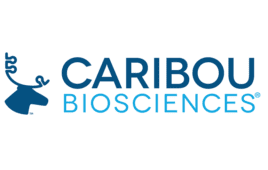 Tanya Sharma, the co-founder of the consulting firm Assurea LLC (Raleigh, North Carolina), helps startups in cell and gene therapy, biotech and food tech implement quality compliance frameworks. Within life sciences, the company helps clients “move from clinical to commercial, or preclinical to clinical,” Sharma said. “We help clients navigate regulatory requirements.”
Tanya Sharma, the co-founder of the consulting firm Assurea LLC (Raleigh, North Carolina), helps startups in cell and gene therapy, biotech and food tech implement quality compliance frameworks. Within life sciences, the company helps clients “move from clinical to commercial, or preclinical to clinical,” Sharma said. “We help clients navigate regulatory requirements.”
Sharma is also an advocate for women in STEM and the life sciences. To that end, she is closely involved in the Women in Pharma initiative from the International Society for Pharmaceutical Engineering. In addition, at Assurea, Sharma has worked to create a supportive culture that honors diversity and innovation.
In the following interview, Sharma touches on how she got involved in the life sciences industry and her work to encourage diversity in Assurea and beyond.
Please walk me through the story of how you got involved in biomanufacturing and life sciences.

Tanya Sharma
Sharma: I came to the U.S. when I was five years old, so I had to adapt quickly. Growing up in India and then coming to the U.S., I was always curious about the different cultures and narratives we live with. My mom is a biology teacher and she introduced me to biomanufacturing, as North Carolina State University had just implemented a new major that was a hybrid between bioprocessing and chemical engineering. I was very interested in learning about the field and being able to apply the knowledge in a practical way — with all the labs — growing cells in a bioreactor!
After graduating from college, I wanted to explore a career in consulting and I traveled throughout the U.S. and Asia on technical assignments. I learned so much by working in different cultures, growing as a leader and experiencing different challenges in various areas. I was consulting at Juno (now BMS) in Seattle and during COVID, I saw the incredible advancements biotech startups were making. I started thinking about traditional consulting models and how often they are very prescriptive. I knew that we needed to support these fast-growing companies in a more efficient and sustainable way. That’s how the idea for Assurea was born. My co-founder is Krisha Patel, who has supported validation and quality projects with startups within cell and gene therapy. We discussed creating a collaborative platform for fast-growing clients that can reduce costs and time required to implement frameworks by about 50%. Within a year of implementing this new model, we were able to grow our team and client base and are very grateful for the tremendous support we have received so far.
How much progress has been made in acknowledging and promoting women’s work in the life sciences?
Sharma: It’s progressed significantly when it comes to communities that provide a platform for women to have access to mentorship, coaching and networks to advance their careers. Being in a community that understands the context of what you are doing builds optimism and encouragement for any challenges that we face.
There is still a lot of room to endorse women for their contributions and accomplishments. There are several pockets within the life sciences, such as in the C-suite, entrepreneurship and emerging technologies, where we need an equal platform and diversity of thought. We can do that by being aware, encouraging women and being inclusive. When we started our business, we started from scratch. We were both early in our careers, without many contacts in the industry, doing something completely different with our consulting models and areas of consulting such as blockchain validation. We found people along the way — men and women that boosted our confidence, which was the activation energy we needed to continue making strides in our mission. I strongly believe that we need more people rooting for each other to create a ripple effect of empowerment.
How can diversity promote innovation in pharma?
Sharma: In the pharma industry, we support many companies implementing new technologies, such as blockchain use cases. I participate in pilots that are implementing blockchain technology as a platform for track and trace for drug products across the supply chain. That is an entirely new concept and one for which there is a limited amount of data available, so it requires substantially more creative thinking. We hear questions such as, ‘How will you meet regulations and what does that landscape look like?’ Diversity is crucial when answering such questions regarding new technologies and innovation. You want different perspectives regarding competency in, for example, manufacturing or engineering, from people in different areas around the world, that can help shape the path forward for increased collaboration and to drive innovation.
Diversity is important as both internal and external considerations for pharma companies. Another critical aspect is that pharma companies should ensure that clinical trials are more geographically dispersed. Patients in Asia or Africa should also have a voice in clinical trials. That global perspective can only be added if people are involved, and the core team or steering committees have that diverse perspective and share it.
Being a woman of color in a startup, it is important to me to break the barriers for others who are similar. I want to communicate my story as I believe there is so much power and influence in sharing my experiences to help guide other women to accept opportunities that might not even have been considered an option in the past!
What has the most significant leadership challenge of your career been and how did you overcome it?
Sharma: One of the biggest challenges relates to feedback. If you are creating something new, you’ll ask for and obtain feedback. Some of the advice you receive might be more conducive to what you’re doing and some of it won’t be. But how do you navigate those opinions, identify what will work and what won’t, and what to do with it all? What is your decision-making process when it comes to feedback?
That was one of the leadership challenges when starting Assurea because ours was such a new model. We overcame this challenge by field testing our model iteratively and hearing the customers’ voice early on. In our company, once we have 70% of data, we move forward and even if it is a wrong decision, we know we have time to figure out any mistake and fix it.
How do you help clients with technological challenges?
Sharma: We help create and build frameworks for areas where there is not a lot of regulatory clarity, such as point of care with hospitals, platform-focused activities or clients that are implementing emerging technologies to integrate labs or their end-to-end supply chains. We have supported several clients, including Moderna, successfully building sustainable quality compliance frameworks.
What is the most important lesson you’ve learned that has guided your career?
Sharma: When growing a team, it is imperative to continue to have a mission-focused culture. That was the biggest learning at Assurea. We are growing and are always hiring, but some people do not align with our values. And it’s hard when someone is not aligned with your values, but they’re technically a good candidate for your clients. That was an important lesson for us — we must continue to focus on creating and building the culture we know will be best within Assurea.
Can you say more about Assurea’s culture?
Sharma: We have a challenge network. Every week we have a team meeting. If there’s a project one team member is working on, that person presents it to the team. We all try to have a different perspective or find another way of doing something. That process updates our beliefs so we see that there could be more than one way to maximize impact.
In the challenge network, we ask questions related to intentions for the week. These could be personal or professional growth challenges. We see the network as a good way to root for each other and challenge each other in growing. It has helped us become a very high-performing team because it’s unrelated to our day-to-day activities and what we do at work. It’s more of just building that camaraderie between us and sharing new ideas with each other.
Another value that we have as a team is always continuing to learn. All of us are involved in different communities of practice and industry guidances. This is something that we can always rely on when we talk to our clients or try to help them understand the current FDA regulatory guidelines and regulations.
I am often asked, “what is different about Assurea’s employees?” My answer is freedom. The door is always open. Our employees are all remote and they are encouraged to always find opportunities that align with where they are in their life — with Assurea or with another company. We support them with whatever their goals are. That type of freedom creates open dialogue and a relaxed atmosphere.
Do you have a perspective on ways to encourage more young women to enter STEM and life sciences?
Sharma: It depends on where they are in the world and the market needs. In some countries, a lot of women are in STEM, but it can be difficult to advance in those areas.
Everything starts in the school systems and one’s education. Following college graduation, one might not have exposure to different potential options in STEM. It is tough to backtrack, especially if student loans are involved. But the root of it is in the school system and having an educational program that encourages involvement in STEM. There could be after-school programs or collaboration opportunities with companies that share various aspects of what it means to have a career in STEM. That’s probably the best way to get more young women into STEM.
To keep people in the STEM field, participation in accelerator programs and leadership workshops are critical to develop exposure and awareness for both men and women. Some women’s organizations are not as inclusive to men. But to make a real difference, everyone must be included. At Assurea, we are trying to do that with our Rooting for You campaign. We want to highlight allyship. It starts with intention and an awareness of celebrating somebody’s success. That in itself is confidence-boosting. People need to be aware before they can help with a shared solution, but I think you could only do that in a vacuum, and you have to include everybody in that mission.
Filed Under: Drug Discovery and Development, Women in Pharma and Biotech





Tell Us What You Think!
You must be logged in to post a comment.